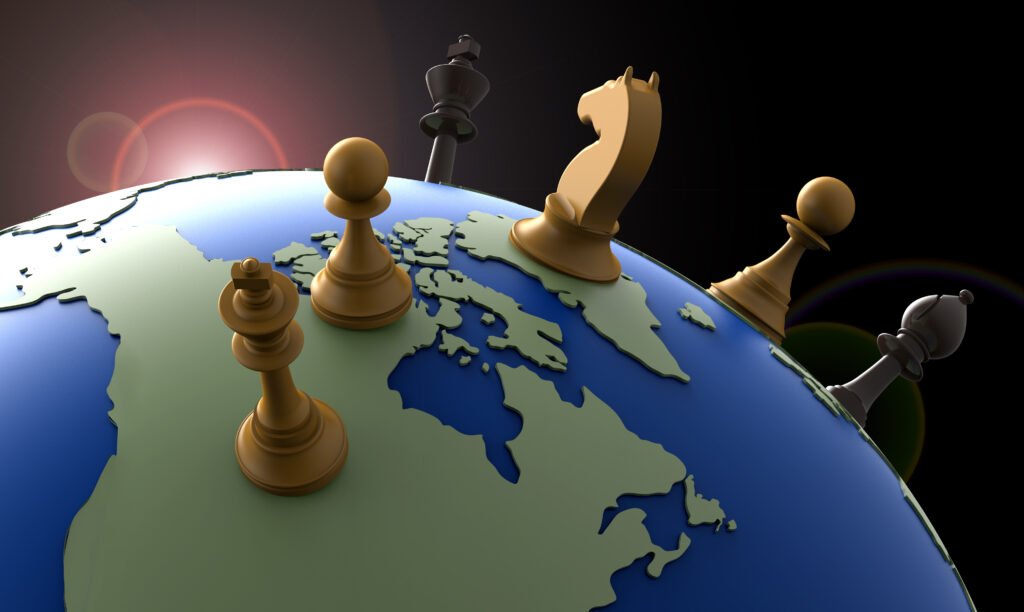Geopolitics is the study of the effects of geography on politics and international relations. It examines how geographical factors, such as location, climate, and natural resources, influence the behavior of states and shape global power dynamics.
Core Concepts in Geopolitics
- Heartland Theory: Proposed by Halford Mackinder, this theory argues that control over the “Heartland” of Eurasia (Eastern Europe and North Asia) is crucial for world domination.
- Rimland Theory: Nicholas Spykman countered Mackinder’s theory, arguing that control over the “Rimland,” the coastal regions surrounding the Heartland, is key to global power.
- Sea Power Theory: Alfred Thayer Mahan emphasized the importance of sea power, arguing that control of the seas is crucial for global dominance.
Geopolitical Factors Shaping the World
Several geopolitical factors continue to shape the world order:
- Geostrategic Locations: Countries with strategic locations, such as those controlling vital waterways or natural resources, hold significant geopolitical influence.
- Economic Power: Economic power, measured by factors such as GDP, trade, and financial strength, is a crucial determinant of a nation’s geopolitical influence.
- Military Power: Military capabilities, including nuclear weapons and advanced military technology, are essential for projecting power and influencing global affairs.
- Cultural Influence: Soft power, such as cultural influence, diplomacy, and international aid, can also be a powerful tool in shaping global perceptions and alliances.
Geopolitical Challenges in the 21st Century
The 21st century presents a complex geopolitical landscape, shaped by various challenges and opportunities:
- Great Power Competition: The rivalry between major powers, particularly the United States and China, is reshaping the global order. This competition is playing out in various domains, including technology, trade, and military power.
- Climate Change: Climate change has significant geopolitical implications, affecting resource availability, migration patterns, and security. It can exacerbate existing tensions and create new geopolitical challenges.
- Cybersecurity: Cyberattacks and cyber espionage have become increasingly sophisticated, posing threats to critical infrastructure, economies, and national security.
- Emerging Powers: The rise of emerging powers, such as India and Brazil, is altering the global balance of power. These countries are challenging the traditional dominance of Western powers and seeking greater influence in international affairs.
Geopolitics is a dynamic and ever-evolving field. Understanding the interplay of geographical, political, economic, and cultural factors is crucial for comprehending the complex dynamics of international relations. As the world continues to change, geopolitics will remain a vital tool for analyzing global events and predicting future trends.

Leave a Reply